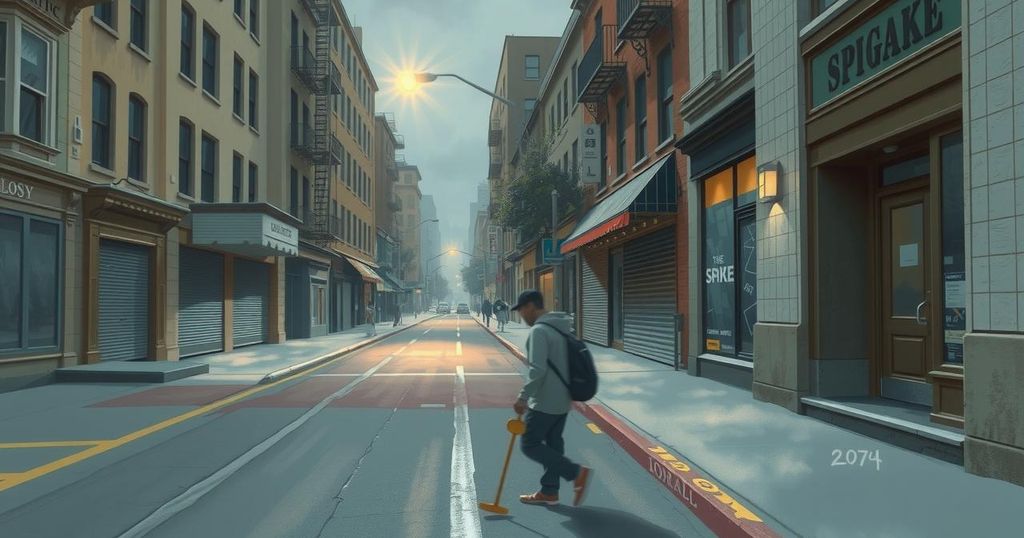Mozambique: Limited Response to Mondlane’s General Strike Call

Former presidential candidate Venancio Mondlane’s recent call for a general strike in Mozambique received minimal public support, with schools largely open and only limited public transport. Despite some violence involving police and protesters, the atmosphere was significantly less tumultuous than previous strikes. Mondlane’s attempt to alter Heroes’ Day to commemorate specific individuals also met with indifference, as official celebrations continued under government direction.
On Tuesday, former Mozambican presidential candidate Venancio Mondlane initiated a general strike to recognize what he termed “the true heroes of the people,” but the response was largely muted. Maputo remained relatively unaffected, with a notable absence of street blockades or riots that characterized Mondlane’s previous strikes. Schools largely operated normally, contrasting sharply with earlier strikes that saw extensive closures in both public and private institutions.
However, public transport was severely limited in Maputo and its adjacent city of Matola, as many minibus operators kept their vehicles off the streets out of fear of potential attacks. Despite this caution, there were no reports of vandalism against passing transport. Some shop owners opted to remain closed, mindful of the riots that transpired in December, leading to an atmosphere of unease.
By midday, clashes were reported in the Casa Branca area, where police utilized tear gas and live ammunition against demonstrators, despite warnings from Justice Minister Mateus Saize regarding the use of lethal force. Tragically, reports indicated that at least two individuals were shot dead during these confrontations, as noted by the “Decide” Electoral Platform. This organization also condemned the violent death of a Mondlane supporter in Inharrime district, who was discovered with severe mutilations.
Since December, the “Decide” group has reported that at least 15 supporters of Mondlane have been murdered, alongside a senior member of the ruling Frelimo party. Mondlane’s call for a strike was unforeseen, following his decision to cancel Heroes’ Day celebrations originally scheduled for February 3, the anniversary of Eduardo Mondlane’s assassination. He proposed shifting this commemorative day to March 18, marking the police’s violent suppression of peaceful demonstrators honoring the late musician Azagaia.
In contrast to Mondlane’s decree, public observances for Heroes’ Day proceeded without disruption in Maputo’s Heroes Square, featuring an address by President Daniel Chapo. Regardless of any claims he made concerning his presidential victory, Mondlane lacks the authority to unilaterally designate public holidays or determine national heroes. He included notable Frelimo figures, including Eduardo Mondlane and Samora Machel, among his proposed heroes, despite his overt disdain for the party.
Additionally, his list recognized victims of political violence, including his lawyer Elvino Dias and election agent Paulo Guambe, both murdered in central Maputo. It also featured significant individuals such as poet Jose Craveirinha, human rights advocate Alice Mabota, and journalists investigating financial corruption, Carlos Cardoso and Siba-Siba Macuacua.
The recent general strike called by Venancio Mondlane in Mozambique witnessed a lukewarm response, reflecting public disinterest and a more calm atmosphere compared to previous strikes. Despite limited public transport and some business closures due to safety concerns, schools remained operational. Tragically, violence erupted in Casa Branca leading to fatalities among demonstrators. Mondlane’s unilateral decree to shift Heroes’ Day and recognize specific individuals as heroes has also drawn public apathy and does not hold authoritative legitimacy. These developments indicate a changing political landscape and public sentiment in Mozambique.
Original Source: clubofmozambique.com







